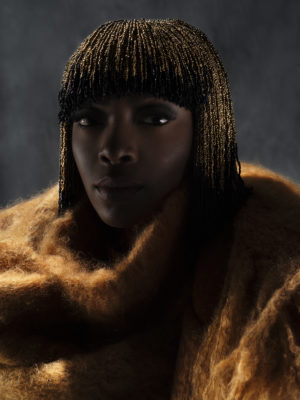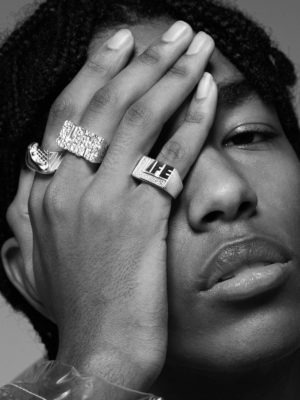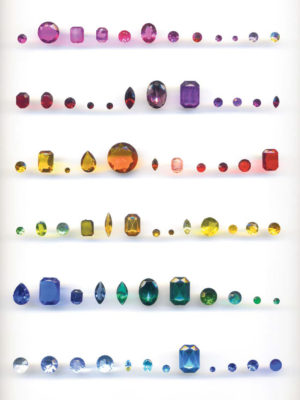Adam Grinovich July 2013
Hello all and welcome to the discussion. As this is the bbnbn post i will use it in order to (briefly) introduce all of the members of the group. If there is any further information needed feel free to ask. As of right now we have 5 participants. I exclude myself from this group because i am choosing to act as a moderator. All of the participants know me in some capacity. I have met each of you in person. I will attempt to give the most basic information about each participant. I have attempted to describe each person based in the how i understand your professional position. If I have made any mistakes please contact me.
The participants are as follows:
Sean Yeaton: Musician, Writer, Artist.
Damian Skinner: Critic, Writer, Historian
Rogier Taminiau: Artist, Painter, Photographer
Otto Kunzli: Jeweler, Artist
Edward Grinovich: Entrepreneur, business-owner.
Welcome to the forum.
Adam Grinovich
We live in a world of constants and variables: things that stay the same, things that change. Generally speaking, change is usually brought about by some force, an impact. This impact could be as mundane as a subtle inner feeling or as monumental as a world war. An interesting element of change is its relation from what was, to what is, to what will be, it embodies a range of emotions from severe nostalgia to unbridled hope. Development, decay, and everything in between.
I was thinking about the idea of change and how decades stand for specific markers and cultural definitions. It’s a strange phenomenon. The 70’s had a hippy movement and aesthetic, 80’s neon, electronic instrumentation, 90’s had grunge culture and a widespread sense of apathy, the birth (and death?) of generation X. I still have the unreasonable sense that on January 1 1980 people woke up to a world that looked, sounded, and felt entirely different. I realized that this way of thinking has conditioned me in a way to think about cultural shifts in 10 year periods
What does change mean to you?
Damian Skinner
Every generation articulates a moment in which the world changed. The English author Virginia Woolf wrote that ‘On or about December 1910, human character changed’. I’ve always loved the entirely unreasonable specificity of that date, so I’m inclined to feel warm towards your claim that 1 January 1980 marks an epochal moment in human culture, and that waking up that morning was to encounter a world transformed from how it had been the day before.
But I also find it interesting that you stop describing the 10-year cultural shifts when you get to the 2000s, because it becomes too hard to get an historical perspective on the times in which you’re a participant. How would you define 2010 onwards as different to 2000 onwards? Can you identify change while you are experiencing it? I’d say you can, but it can’t be narrated until it becomes history and therefore distant and other in some way. The oracle in The Matrix films says that we can’t see beyond the choices we don’t understand, and I’ve often thought that is a really useful idea. Maybe in this instance I would translate that as: change becomes history the moment we can articulate what it means, or the character of its difference to what came before.
Adam Grinovich
Now that I’ve had some time to think about this in detail my thoughts are that change has two distinct qualities: Change that happens gradually, like age or these kind of cultural trend movements (and i do believe very much in your comment that this can of change is very difficult to articulate, i mean, do you appear older today than you did yesterday???) and change that happens because of impact, because of some kind of moment that inspires an epiphany of sorts… Even with this impact initiated change i can still very much see change manifesting itself in a subtle matter, i have recently been reading a book which has made me think drastically different about certain kinds of aesthetics that i once disliked very much… for me this is a major shift delineated by a specific moment in time. And again, to get to your point, since i could articulate this moment, that it came from this book, it made it easy to witness the change in action. As a matter of fact i could even observe the specific qualities of this change, how it affected my other tastes, how it made me speak about certain topics with people. I could more or less monitor this change because i was by and large in control.
But you’re a critic, so my question to you is: Do you have any premonitions about change, in art/culture or otherwise. Someone recently showed me a “trend-spotter” (and i’m certainly not insinuating that you fall into this category) but it made me really think about what that could possibly mean. Is it like the stock market, where hints of a change in tide can cause a shift in cultural value or opinion?
Damian Skinner
As a critic you are commenting on what you find interesting or important – or uninteresting and unimportant – and why that is the case. And in doing this work, you definitely build up ideas about trends or tendencies. Maybe you notice a few different projects that seem to share certain things in common, or maybe you craft a narrative that allows you to link different things together. This can definitely involve premonitions about change, as you put it. But it is only later, when you have some distance, that you will know what kind of change it is you identified, and whether it has the substance to become a marker of wider significance. This will depend on what others – critics, artists, institutions – do, and whether a lot of different actions and ideas coalesce into something larger.
As to what kind of role a critic or writer or curator has in contributing to change, we all hope that we might say or do something that will prove influential, but I don’t know if this ever stops being more than desire on the part of the critic to imagine they make a difference! There are many different ways I would like various cultural practices and art worlds to change, and I can articulate and agitate for this change to take place, but there is no guarantee that will make any difference. Then again, some change is about ideas or philosophy (e.g. this is what I think is going on), and some is about what you do or how you behave (e.g. I think we need more critical discourse in the field of contemporary jewellery, so I will start writing it). It is amazing what can happen when you decide to act as if the world is different. As Gandhi put it, ‘If we could change ourselves, the tendencies in the world would also change. As a man changes his own nature, so does the attitude of the world change towards him. . . . We need not wait to see what others do.’
Otto Künzli
Change
Decades and Changes have nothing to do with each other, except that some peoples need or wish to put everything in boxes, in pigeonholes, to categories everything, to create “Isms”.
Decades (as well as centuries and millenniums) are a western invention based on the decimal system. Far over 2/3 of the worlds population have their own and different calendars.
But yes, I also use phrases like: this is typical 50’s.
Changes are subtle and happen without even noticing, and in their accumulation one day they may hit you like mad. Changes are noisy, big, frightening and overwhelming, but after all not much may actually have happened. Some changes are wonderful and refreshing and somehow something has some when really changed. Certain things I try to change but repeatedly fail to do so. Some other things I wish so much to keep but don’t manage, they change against my will, and looking back it was not always the worst thing that it changed.
When I repeat a piece it is never the same. Therefore something must have changed. Therefore I never call repeating “repeating” but instead renewing.
I changed almost 100 silver coins from about 40 countries by erasing both sides, head and tails. Queen Elisabeth had to go, Mao got removed, and I filed of the Pope as well as Steffi Graf. I transformed all the silver discs into pendants and named the project “Change”.
Every moment something is changing. And I change all the times something somehow. Therefore I am.
When I watched the towers in New York coming down, life and from not so far away, a lot changed, but my life didn’t.
When I was sixteen, my six years older brother died and my entire life change forever.
Sorry for my long statement – it is the first and the last for this project – because I have just decided to make an other change and to quit my participation.
Adam, next time when we enjoy a drink together, I will tell you why (it got nothing to do with you)
All the best
Otto
Adam Grinovich
Along the lines of this question i certainly think that the western mindset is built in order to fit life in to boxes defined by decades. We even define ourselves the amount of decades that we have accumulated, and talk about ourselves in the past tense as different kinds of people (when i was in my 20’s i was arrogant as hell, ha!)
I have always been a big fan of your “Change” exhibition, as you we changing things that should never be altered. In most countries manipulating the currency in any way is a crime. So there it is, some things are culturally “wrong” to change.
And in the other sense it can be “wrong” culturally not to change after something such as 9/11. I can personally say that I watched the towers fall in real time on a television in boston, the same city the planes flew from, and it affected me very little, to the point that i questioned if there was something wrong with me, if i lacked a healthy amount of empathy. From my point of view I can sympathize with your view very much, especially because of my age. I grew up in the era of media culture, where all change (usually paired with some kind of catastrophe) was televised and broadcast as a commodity, and it pushed me in the direction of feeling and reacting much more stingily to personal changes rather than to sensationalized changes, broad changes in culture or politics.
To take it in a personal direction I believe that these sentiments towards change have made me very attracted to things that are resistant to change. Take for instance a bicycle, a form that never needs to change, or a format that will never change like having a drink at a bar, which people have done forever and will continue to do so forever. Its like looking at the periodic table of elements, there’s no possibility of seeing it another way. Perhaps when i’m surrounded by things such as that i feel the most content.
Ed Grinovich
Cultural change is, from my seat, an adoptive process on a grand scale. An event, an idea, a perceived event or a non-event, is circulated, discussed, redefined and articulated a thousand times, and the general view of the populous of any region accepts the thing as part of the current culture.
There are overwhelming events that drive a culture to some change, war, disease, ideological waves, but those are both unavoidable and not an indication of what any culture has agreed upon is a representation of their understandings.
On a trivial level, perhaps not so to some, fashion is one of those cultural icons we paste on an era.
No one decrees fashion, it is simply the adoptive resolution of the majority that some particular style is the iconic representation of the “generation” / era / culture, thus, every other person has some iteration of the fashion on, for as long as that style is determined to be representative. When a new fashion displaces the prior, the old is a landmark to history and the new is the new true symbol of the culture.
I do not minimize the importance of events, but events effect the individuals affected, not the whole, some events are human landmarks and force change on many levels, but that event needs to be so huge that the majority needs to accept the obvious conditions implied or enforced by the event as drivers of their current culture.
Adam Grinovich
What interests me about this whole idea these striations in society, these cultural lines carved into history that serve as words and concepts for people like me to define the things that i see. As Otto said everyone, especially in any kind of aesthetic field, knows what something “80’s” looks like. Now that i’m writing this i have the feeling that not all things have these cultural stigmas attached to them; whereas music, art, and design had very deep ties to that specific era other genres, such as literature, or even, professional boxing, had no connection whatsoever.
As a whole humans have the tendency to want to define things, perhaps that comes from the fear of the unknown. Anything that resists categorization has traditionally been ruled as unsavory at best, and, to really push this idea to its maxim, ever since western society began to embrace a darwinistic approach to a rational evolutionary history it seems to me that anything that we can’t put our finger on right away gets filed away under the category of lunatic ramblings or zealotry. I only bring this up because I believe personally that there is a very bizarre quality that resists rational understanding that characterizes our lives, and i think what you’re saying is that personal intuition and impact trump cultural definitions and taxonomy in general.
That may have been a tad bit tangent but, my point and question to you is: When you were a part of one of these movements or eras or whatever we want to call it, how did it feel? Lets take for instance the 60’s: Thinking back could you perceive a certain cultural aura? As the decade came to a close was there a sense of transformation? This idea that Hunter S Thompson articulated so well as “the wave rolling back” .
Damian Skinner
Ed, I think your point that events need to be separated from cultural change or a culture’s representation of their understanding of themselves is an interesting one. Would you say that in order for an event to become a form of cultural change, it has to be connected to representations of a culture’s understanding of themselves in some way? Or that certain kinds of events are more available to be used in this way?
For example, both Woodstock in 1969 and the Al Queda attack on New York in 2001 are important events, and they seem to also carry a certain cultural weight, a layer of representation that makes them more than just something that happened. One is a music festival, and one is a terrorist attack, but it seems to me that you could use either of them to tell a story of cultural change in the western world. And both of them seem to have a different status to the tsunami in Japan in 2011, which doesn’t seem to carry the same symbolic weight. I wouldn’t know how to talk about the tsunami as a driver of cultural change.
Sean Yeaton
Perception is the tool of influence, which crafts change. Time is a way to measure change but I believe its Perception that governs (commissions?) acts of change. This notion, for me, requires the consideration of alternate realities and universes that perhaps exist as an analog to our own current perception of the present (how it will or WE’D LIKE it to impact ‘change’). The seeds of these alternate realities still exist in our current perception of the present they have perhaps only not sprouted as much as others. This, in a way, relates BROADLY to the notion of JUMPING THE SHARK: The eponymous example of THE FONZ from Happy Days using water skis to jump over a shark in the show HAPPY DAYS marks the decline of the program, which begs its audience to wonder what COULD have been and implies that CHANGE, in an irreversible sense, can not be simply GOOD or BAD but can only be–what if Kurt Cobain were still alive? What if The 13th Floor Elevators became as famous a band as they were at one point forecasted to be? What if Y2k really did spark a global technological catastrophe? What if the Fonz never jumped the shark? These are ultimately questions we can only speculate on. The influence(s) these examples (and infinitely more) have made on culture will continue to have an impact in some capacity forever.
In this sense we must consider change either a permanent scar or tattoo (depending on your definition of each, which I think is probably pretty interesting, too)–change is never temporary and always leaves a mark–I’d say many, many, many, INFINITE marks, some of which are clearly spread in front of us and others that are much more subversive.
Adam Grinovich
So we’re looking at this from the broad sense, but also in terms of perception, which really makes me think about individuals that actively attempt to change or alter perception. Drug culture creates a concrete identity about endeavors to change perception via chemical substances… and this could be something, why is this always and undercurrent of society? Again i think that this might relate to some idea concerning impact, but a calculated impact that everyone is somehow looking for. Rather than waiting for a musician to die, or a new global catastrophe, we have the ability to create cataclysmic moments in our own lives by simply inhaling or swallowing a pill. For me drugs are relevant because they change you, they change perception, which from an existentialist point of view is one of the most monuments things one can do. Drugs are associated with specific eras, as they posses a district intoxication that is sympathetic with the current cultural atmosphere. So to put it in a confusing way, as things change people feel the need to actively change themselves in different ways.
In the same way it has nothing at all to do with drug culture, but much more to do with your mention of perception as the tool of influence. For instance if one is incredibly emotionally upset the world behaves in a completely different way than it does when one is feeling generally “fine” Anyone who has ever been deprived of sleep can understand that perception is greatly affected by mundane details that keep life in its general equilibrium.
Ok, so what i’m really questioning is: What is the constant? Quite some time ago we talked about the idea of the glue that keeps this world together, the idea of this mutually understood etiquette that stops someone from behaving in a completely abnormal manner. To quote a rather trite cliche “the more things change, the more they stay the same” Its crazy right… i think that when i was a child i expected things to be a lot more different now than they are (technologically, culturally, globally, etc). What happened?
Adam Grinovich
I think that this idea of the personal and the universal is interesting in its relation to change, also in its relation to subjective/objective thought and the way which we are taught to categorize the things that make up our lives.
Perhaps this comment about “jumping the shark” is worth elaborating on, as it really shows where choice (or lack thereof) meets change. From my perspective this idea of different cultural realities serves to pacify the chaos of life, in the sense that one can always look back and wonder what might have happened if things had worked out differently.
I’m also interested in this idea of change in relation to free will, what changes do we initiate and what changes are imposed on us. If an alcoholic makes the decision to stop drinking then it marks a very distinct moment of change, a moment that can be commemorated. (Again this is an illustration of “jumping the shark” one could always imagine a scenario where there was no intervention). Perhaps “jumping the shark” always has to do with a willed form of change, by some identifiable force.
If one gets diagnosed with a grave illness, or on the other end of the spectrum wins the lottery, change also occurs on a drastic scale, but is imposed by a non-entity, a non-willing force… In the same way that the body changes due to age.
Do we require perspective to perceive change? When we’re young we’re required to learn history, local and global, and we are taught about moments or change and their national/global consequences.
I can personally say that most of the changes in my life so far have been due to a source that I could locate, and i know that my age has a lot to do with that. We are all living right here and now, and that dictates a tremendous amount of free-will. We have the ability to make choices and take responsibility for the consequences. I read an article some time ago that was on the theme of choice, and it illustrated that the idea of choice is a fairly modern concept. In earlier western eras it was thought that God willed everything that occurred in the world, so the idea of choice was moot as it was a higher power that had full control over the fate of mankind.
I’m trying to dig a bit deeper with this idea and its relation to how each of you perceive changes (internal/external, personal/universal) in relation to your perception on an existential level.
Damian Skinner
I recently read a short story by science fiction writer Greg Egan about the multiple universes theory, in which there are an infinite number of worlds in which different consequences unfold from the choices we make – therefore, no choice is ever final or determinative. There is, in effect, no free will, since all possible outcomes will be played out by the different versions of you spread across the different universes. The protagonist decides to create an artificial intelligence child who, with the aid of technology that I couldn’t understand or repeat because the maths and physics were beyond me, would make choices that would be final, because they would be singular – cut off from the multiple universes, there would only be one individual, in this world, making decisions and experiencing the consequences. His need to create this child emerged from his sense of helplessness, his feeling that free will didn’t exist because whatever he did would, when considered from a perspective that took in all the multiple universes, have no impact. (All possible outcomes would be happening to a version of him somewhere.) Certainly, when you start thinking about change and what it means, it can induce a kind of philosophical vertigo. At the beginning of this conversation, I would have said that I knew what change was, and how to induce it – and that the only uncertainty was around its effects. But when you begin to think about it, you start to see infinitely regressing and progressing chains that make change a complicated proposition. It seems arbitrary as to what you choose to identify as the states before and after change, or the action that causes change, or the consequences.
Ed Grinovich “what you choose to identify as the states before and after change, or the action that causes change, or the consequences” Yes it is arbitrary, we are all, to different degrees, arbitrary in or thinking process, but that IS change, your / my acceptance of the state is acceptance of the alteration / mutation = change
It’s what we define, with conviction, to be the truth, and can either align with like minded humans or convince masses to be true, is the thing we call changes, social change.
Not personal change.
I have lived through some of the most catastrophic events, sociologically and some of the most catastrophic events personally, psychologically and physically, “social change”is moderately meaningless to me.. No I have not philosophically “jumped the shark” (thank you Sean) I simply do not buy into someone’s proposal that the world around me, or the opinion of a mass, is something significantly more important than the quintessential facts of my life.
Rogier Taminiau (transcribed from an oral conversation)
I see myself stuck in the 80’s. I remember the punk girls, I was very fond of them then a half a year later they all changed, they were wearing different outfits. It was a new season and they had a new look. At that time you had the rich kids, the ones who went to the discos, the punks, the fashion punks… The punk movement was a reaction to things like Burt Bacharach. Now it seems fragmented… You’ve got David Beckham with a mohawk. Even the people who don’t care about how they look, that’s a kind of a statement, a statement about not caring
My painting style has remained the same for the past 10 years, I suppose that it started in the art academy. I was against abstract panting, for the basic reason that I saw art a s a way of communicating. I only wanted to use materials that already existed in the world… if you want to communicate the easiest way is to use something that already exists. For my second year I switched to the “audio-visual” department… I was working a lot with computers, making animations on old Amiga computers, I even made music with them. I would end up with this stack of floppy disks, now you can do it all with emulators.
I started out collaging music. I was a Dj at a local radio station, this was before sampling really existed. We would cut up sounds from Tv and radio and reassemble them into new sound collages… I remember William Burroughs gave a lecture, and then cut in some audio from a newscast, it turned out that his sound collage ended up coming true in the next few months, it was a kind of a prophesy.
I never saw any kind of turning point in my career, for me things happen to flow slowly. About originality… everything comes from somewhere, you know.
I collect photographs that I collage and then use to make my paintings. Now there is a bombardment of original images. You can see it everywhere on these sites like Facebook and Instagram, they all have polished original images. This retro-vintage style is also popular. I’ve spent the past 15 years collecting these images and now there are Facebook pages that upload them everyday… I don’t really know how I feel about it.
When I collage I always change the originals somehow… by changing the images it tells a story. If there is a change then it’s successful. I’m interested in collaging because it’s a way of making your own life, a way of building your own life, its funny because many of my paintings are about disasters, this is a kind of contradiction.
In a way I’m anti-now. I’m interested in periods where television did not exist. I’ve heard this theory that color television was responsible for the bright colors that the hippies wore in the 70’s. This switch from black and white to color influenced the fashion… Of course with the drugs and music, that probably didn’t have much to do with color TV.
It was about reactions… that grunge was a reaction to whatever came before it. I don’t see many new movements, I suppose the occupy movement was the most recent unified kind of protest. In previous decades it was about right and left, and that’s what I was saying about this fragmented feeling earlier. There’s a lot of small parts spread out all over the place.





